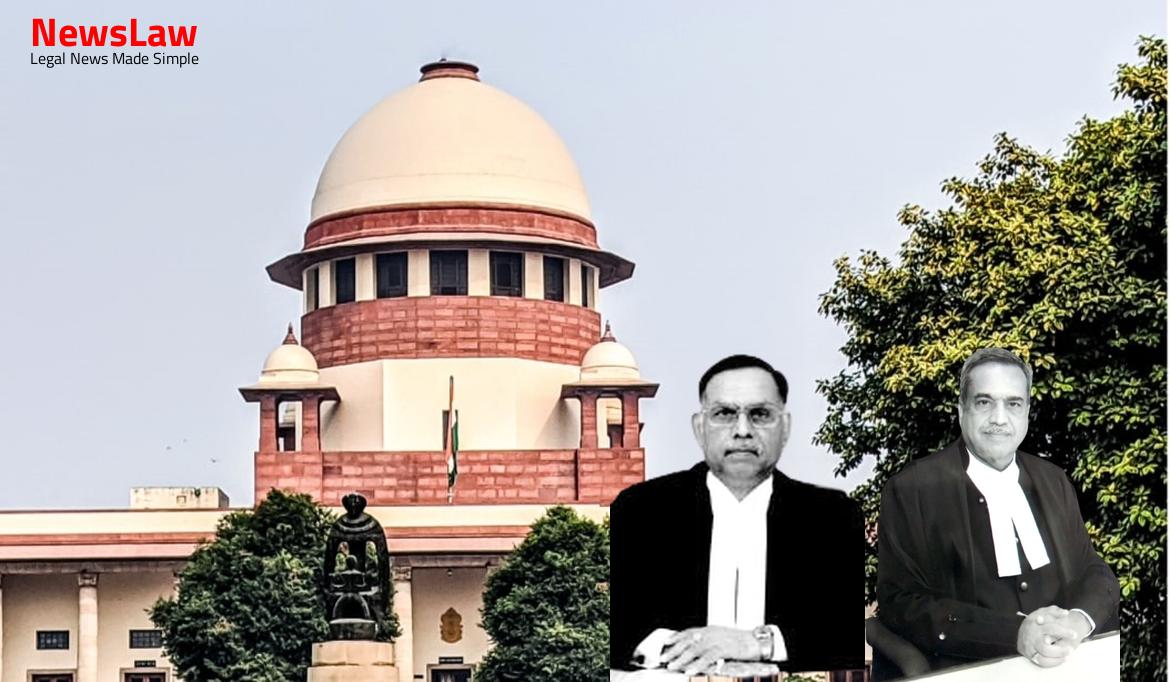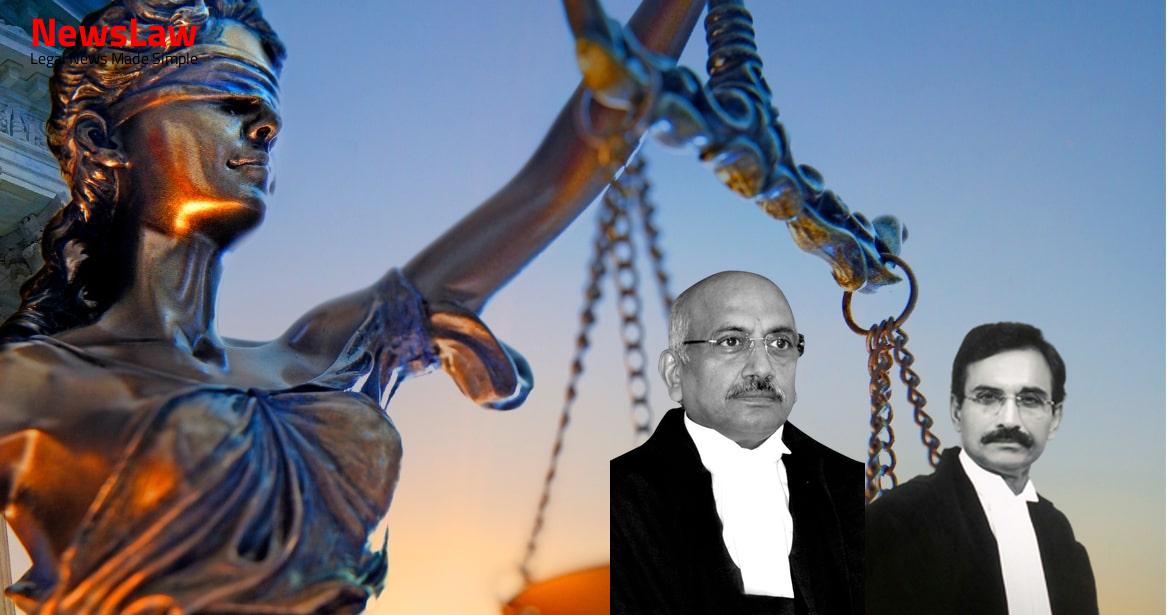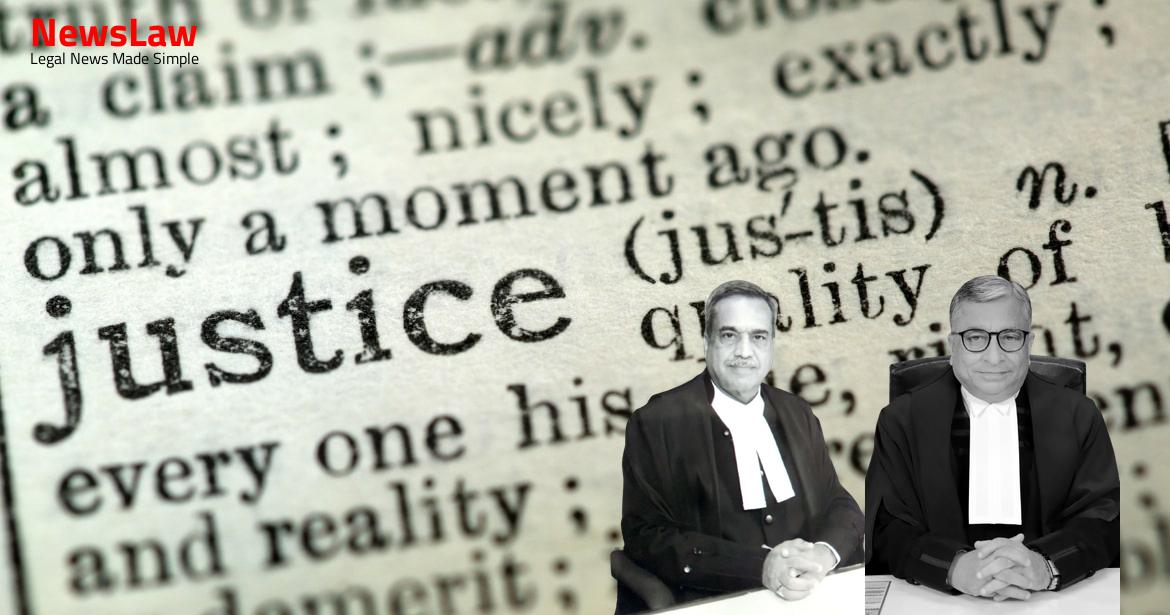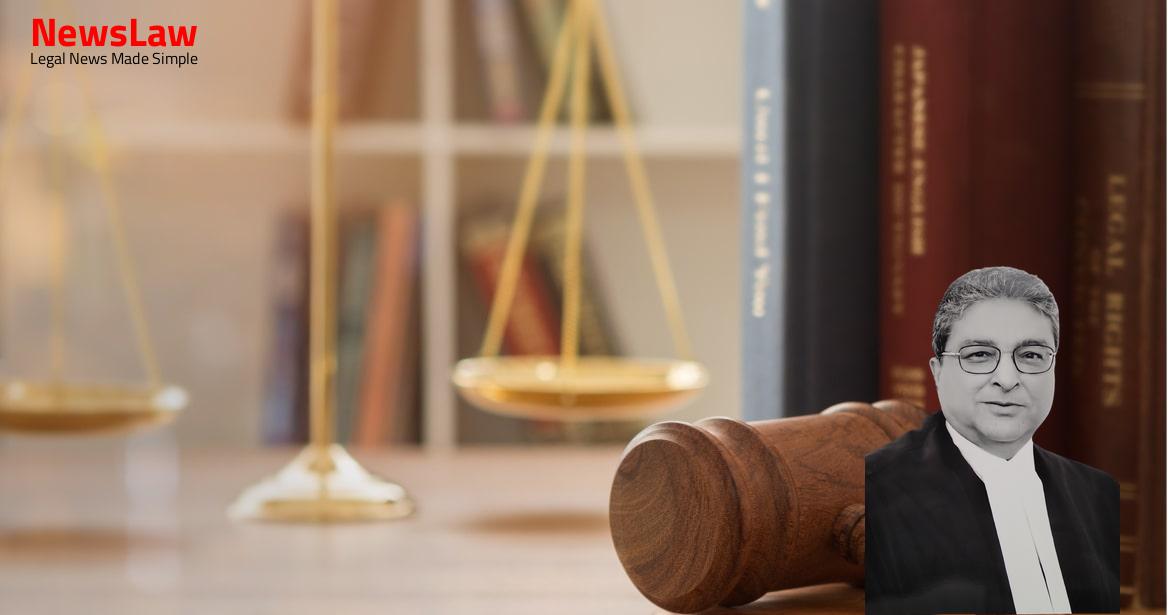Delve into the complexities of review jurisdiction in criminal proceedings as analyzed by the court. The intricate legal considerations surrounding recall petitions, transfer petitions, and the expansive power of review under Article 137 of the Constitution are explored. Learn about the nuanced procedures and grounds required for a successful review petition in the realm of criminal law.
Facts
- The review petition was filed challenging the orders passed on 18.05.2018 and 05.06.2018 in Transfer Petition (Crl.) No. 262/2018.
- The review petitioner claimed that there was an error on the face of the record in the judgment dated 18.05.2018.
- The review petitioner requested a review of the orders and an opportunity to be heard before the transfer petition was decided on its merits.
- Respondents filed replies to the review petition, and the transfer petition was allowed.
- Issues were raised regarding the violation of principles of natural justice and lack of proper notice during the transfer petition proceedings.
- The review petition was taken up for preliminary hearing on 18.05.2018 without issuing any notice.
- After the order on 18.05.2018 directing appearance before the transferee court on 09.07.2018, respondents failed to appear.
- The review petitioner, who was the informant of the First Information Report, was not initially made a party to the transfer petition.
Also Read: Court’s Jurisdiction in Re-appraising Arbitrator’s Findings
Arguments
- Respondent’s counsel argues that there is no apparent error on the face of the record that would warrant a review of the judgment dated 18.05.2018.
- Review jurisdiction under Article 137 read with Order 40 Rule 1 requires a material error leading to a miscarriage of justice.
- Counsel relies on a Three-Judge Bench judgment in Mukesh Vs. State (NCT of Delhi), (2018) 8 SCC 149 to support the argument.
- The respondent had initially impleaded the review petitioner as respondent No.2 in the transfer petition, but the name was later deleted due to an objection by the Registry.
- The respondent had been given liberty to file an application, which was exhausted by filing M.A. No.1589 of 2018, subsequently rejected on 05.06.2018.
- All grounds raised in the review petition were already presented in M.A. No.1589 of 2018, which was previously rejected by the Court.
- Learned counsel for respondent No. 5 has made similar submissions as respondent Nos. 1 to 3.
- The review petition is not maintainable and deserves to be rejected.
- There is no occasion to consider the review petition.
Also Read: Contrary Directions in Issuance of Letter of Intent
Analysis
- The interpretation of necessary power in a criminal proceeding must be expansive.
- Material on record includes any material already on record or brought with the court’s permission.
- Review applications in criminal proceedings cannot be entertained except on grounds of error apparent on the face of the record.
- Recall and review jurisdiction of the Court were elaborately considered in the order.
- Procedure required for conviction was not followed, leading to the order being recalled and set aside.
- Review applications in civil and criminal proceedings can be equated when invoking review power.
- The power of review of the Supreme Court under Article 137 of the Constitution is broader than review jurisdiction conferred by other statutes.
- Article 137 empowers the Supreme Court to review any judgment pronounced or made, subject to provisions of any law made by Parliament or rules made under Article 145 of the Constitution.
- The power of review by the Supreme Court is governed by Article 137 of the Constitution read with Order XLVII of the Supreme Court Rules, 2013.
- The Court has a well-defined procedure to address tampering with proceedings by forged documents or false statements.
- The review jurisdiction of the Supreme Court has clear scope and parameters.
- The review petitioner has the right to file a review application when necessary.
- A reference is made to a case involving a conviction under Section 193 IPC.
- The rule for review in criminal proceedings is based on errors apparent on the face of the record.
- The Court should not entertain applications for ‘clarification’ or ‘modification’ if they are essentially review requests.
- The rejection of a Miscellaneous Application (M.A.) does not prevent the filing of a review petition with new grounds.
- To perpetuate an error is not considered virtuous.
- It is the duty of the judicial conscience to correct errors.
- The compulsion to correct errors is essential in the judicial process.
Also Read: Application for Stay in Civil Suit Rejected: Court’s Legal Analysis
Decision
- The review petitioner filed a recall petition for the order dated 18.05.2018, which was dismissed by the court.
- Parties are allowed to seek clubbing of all pending matters between them.
- Contempt petition stands closed without any further order.
- Transfer petition hearing scheduled for 12.02.2021.
- Proceedings in Crl. Case No. 0003483 of 2017 transferred to the Court of Metropolitan Magistrate in Allahabad.
- Conviction of the petitioner under Section 193 IPC set aside.
- Review petition allowed, and the order dated 18.05.2018 recalled; Transfer Petition (Crl.) No. 262 of 2018 is revived.
- Review petitioner impleaded as respondent No. 4 in the transfer petition.
- One week’s time given to respondents to file counter affidavit and one week for filing rejoinder.
- Transfer petition allowed with the above directions.
Case Title: RAJENDRA KHARE Vs. SWAATI NIRKHI (2021 INSC 45)
Case Number: R.P.(Crl.) No.-000671 / 2018



